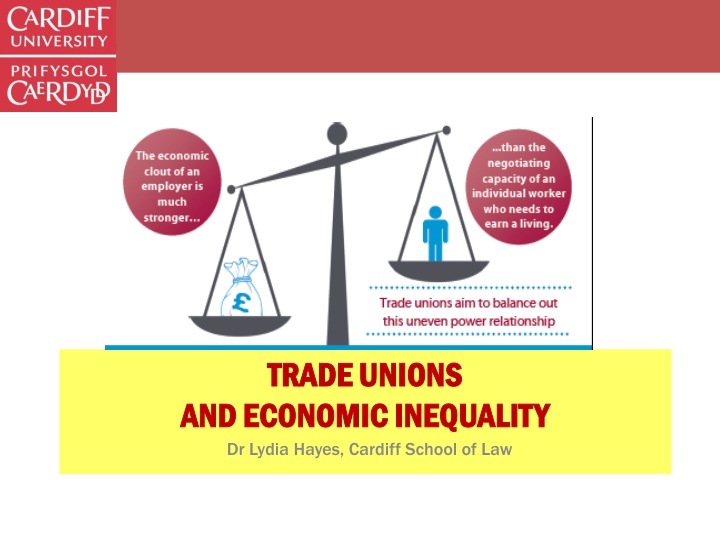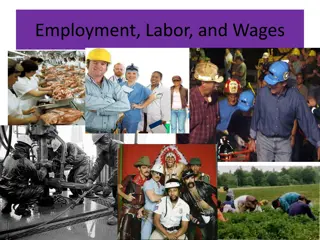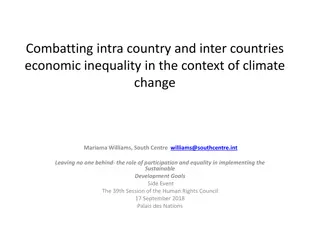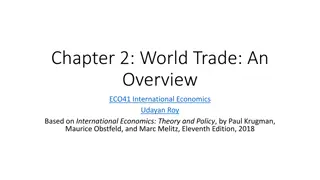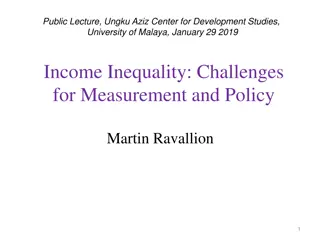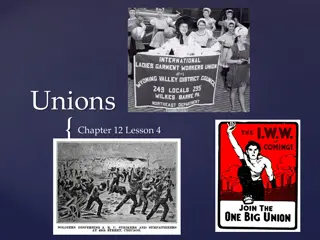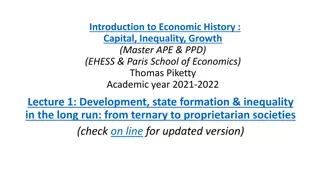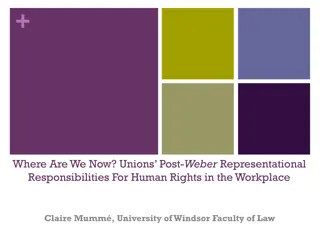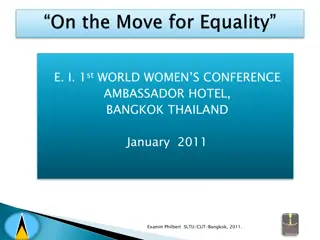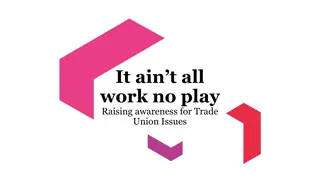Trade Unions and Economic Inequality
Trade unions play a crucial role in combating economic inequality by advocating for fair wages, better working conditions, and social inclusion. Research shows a correlation between the decline of unionization and the rise in income inequality, highlighting the importance of collective bargaining in promoting economic equality. The impact of trade unions on various sectors like homecare reflects their influence in shaping employment standards and advocating for workers' rights.
Download Presentation

Please find below an Image/Link to download the presentation.
The content on the website is provided AS IS for your information and personal use only. It may not be sold, licensed, or shared on other websites without obtaining consent from the author.If you encounter any issues during the download, it is possible that the publisher has removed the file from their server.
You are allowed to download the files provided on this website for personal or commercial use, subject to the condition that they are used lawfully. All files are the property of their respective owners.
The content on the website is provided AS IS for your information and personal use only. It may not be sold, licensed, or shared on other websites without obtaining consent from the author.
E N D
Presentation Transcript
TRADE UNIONS TRADE UNIONS AND ECONOMIC INEQUALITY AND ECONOMIC INEQUALITY Dr Lydia Hayes, Cardiff School of Law
Trade unions: research for the IMF Florence Jaumotte & Carolina Osorio Buitron, Power from the People, Finance and Development, March 2015 Income inequality = increases in income share among top 10% of earners Risk = lower and less sustainable growth in medium term + manipulation of economic and political systems in favour of wealthy Research Focus tax reduction and financial deregulation? Or labour market institutions and unions? Erosion of unions is a key contributor to rising income shares at the top Deunionisation explains half of the rise in income shares amongst top 10% Union membership as a measure of bargaining power but which aspects of unionisation ?
Trade unions: our research Income inequality = decline in collective bargaining coverage in UK Risk = good health, discrimination, decent work, wage hardship Research Focus how trade unions promote economic equality? Bargaining power of trade unions = better employment standards, more generous pay setting, health & safety, transparency, social inclusion Dismantling of sectoral bargaining was a factor in economic inequality and had found legal expression through the support of UK governments. Greater economic equality depends on health of collective bargaining. We need a renewal of trade union rights but which aspects of law ?
Homecare: a sectoral example The fastest growing employment The fastest growing employment sector since the financial crash sector since the financial crash Contracts of Employment Act 1963 Equal Pay Act 1970 / Equality Act 2010 Benefits won through collective bargaining and representation National Minimum Wage Act 1998 / National Minimum Wage Regulations 1999 97% of homecare workers now employed in the independent sector (over 700,000 workers) Good Neighbourliness ? ... A few, irregular, hours of partly-paid work A majority on zero-hours contracts
Homecare: a sectoral example Churchill s serious national evil? Churchill s serious national evil? relative wages of carers 1997-2014 100.00% 95.00% 90.00% 85.00% 80.00% 75.00% 70.00% We are astonished that up to 220,000 care workers earn less than minimum wage and seemingly little has been done to rectify this. Adult Social Care in England, House of Commons Committee of Public Accounts 2014/15 65.00% 60.00% ca50%50 ca80%50 V. Wass, Cardiff Business School. LJB Hayes and V Wass, Wellbeing and the social care workforce (forthcoming).
